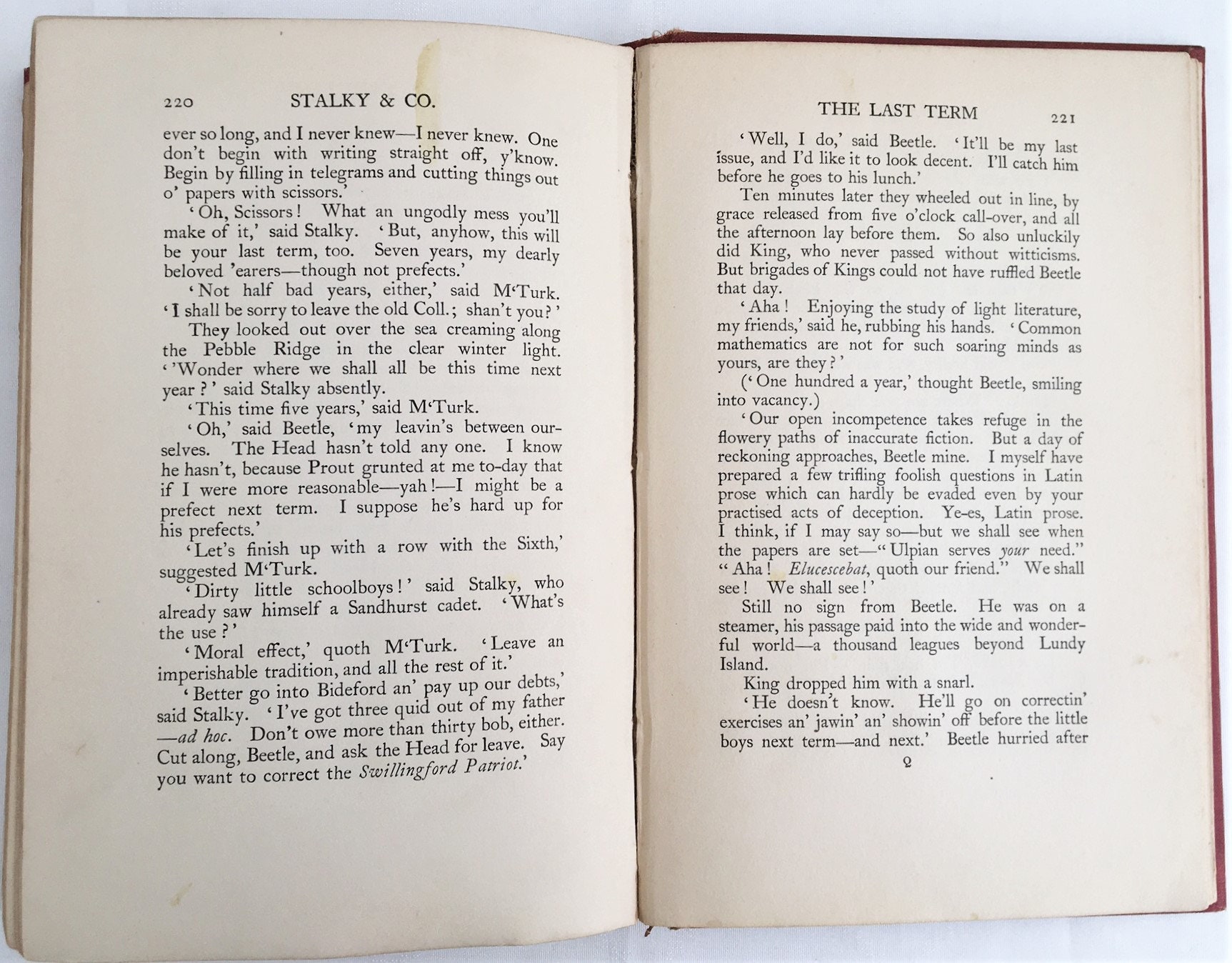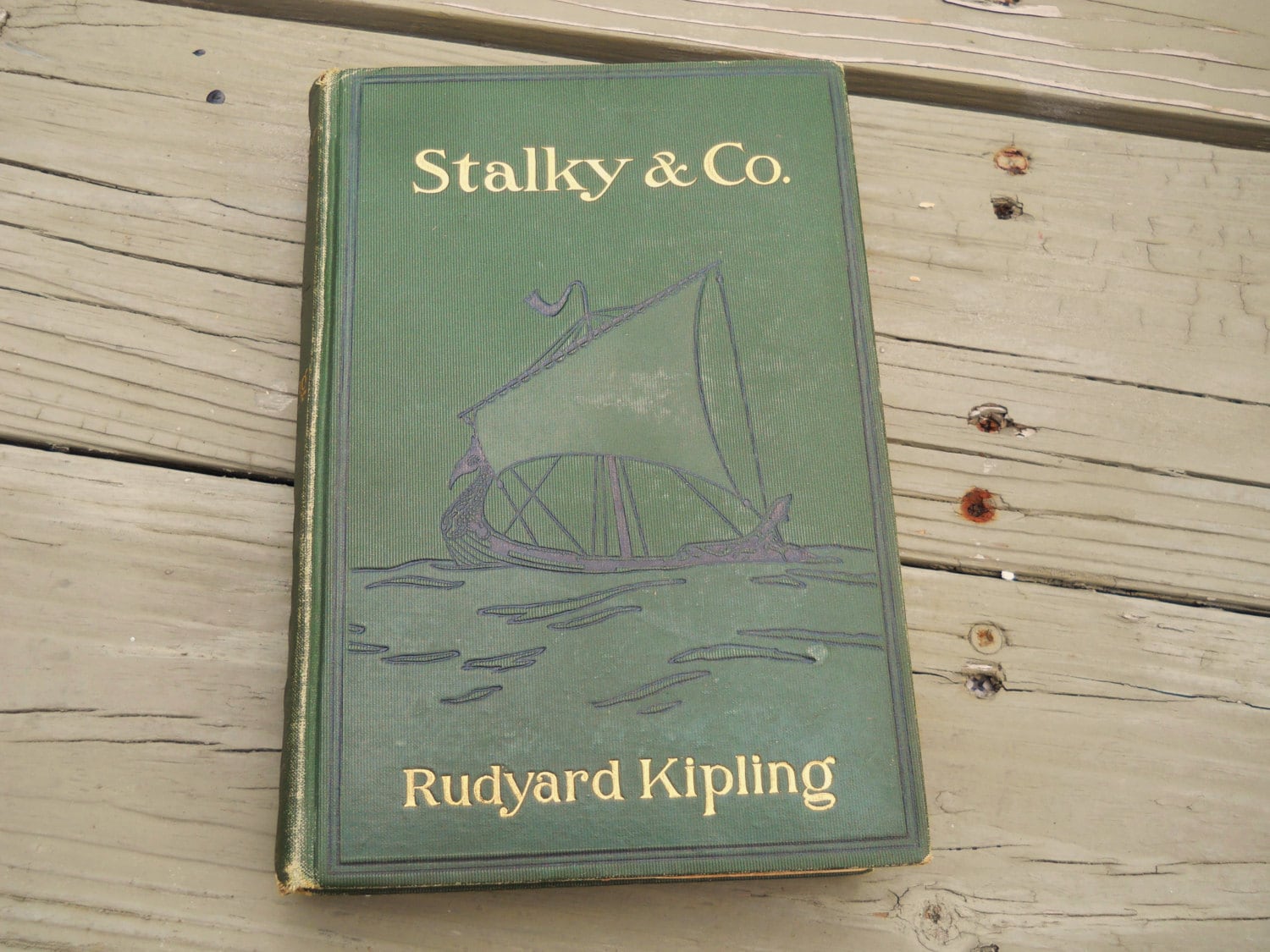

To start with, the school is not a conventional, ancient public school. But Kipling sets out to subvert the genre, implicitly and explicitly. So far, this could be firmly in the genre of 19th century school stories, such as Tom Brown’s Schooldays, or Eric, or Little By Little (which Kipling satirises mercilessly here). The book is a loosely structured, picaresque tale of three boys, Stalky, M’Turk and Beetle (Kipling in disguise) across a couple of years at school. However, all that dysfunctionality is channelled to a profoundly serious purpose – the service of the Empire, and the defence of the interests of Great Britain. (But, as they say of being flogged at public school, it did me no harm, though perhaps I’m not the best judge of that). I am also processing my reaction to being reminded that a book containing so much subversion, violence, disgusting behaviour, insubordination, bullying and corporal punishment could ever have been thought to be suitable reading for children.

I have not re-read it so often in my adult years, but picking it up again, I was amazed to discover just how many layers of meaning it has, and to recall how many of these layers were actually apparent to me when I first read it in childhood. It was so vivid and original to me then that I have scarcely forgotten a word of it since. I read it first when I was no more than about 11.

But of course it must be – it’s a book of school stories. Stalky & Co is deemed to be one of his books for children, along with Just So Stories and The Jungle Books.

The foundation of his writing is a fierce certainty that Britain was worth deep personal commitment, worth defending and fighting for, and from that bedrock he took the strength to ensure that in what he wrote he was keen-sighted, and, to an extent, did not mind what he said or how he said it. By the time he died in 1936, he had seen its glory in tatters, seen, and suffered personally, the tragedy for the country he loved of the First World War. He was born there (in 1865), and, as we shall see in ‘Stalky & Co’, was specifically educated to serve it. The British Empire, and particularly India, was the mainstay of his life, a given. He is a writer grounded in his time, a chronicler of Empire, certainly, but not at all predictable or unthinkingly deferential. Hands up all who think that Rudyard Kipling is a jingoistic, unquestioning chronicler of the Empire.


 0 kommentar(er)
0 kommentar(er)
